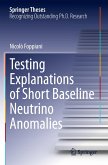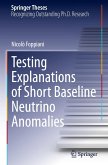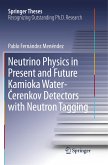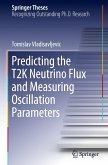This textbook offers an insightful and practical introduction to computer simulations of neutrino scattering, decay processes, and flavor oscillations, providing essential background on their computational aspects. Through hands-on coding guides and examples, it walks students through simulations of key neutrino processes while integrating relevant historical context. It also explains the fundamental steps involved in event generation for processes such as beta decay, solar neutrinos, and neutrino nucleon scattering, as well as in the computation of neutrino flavor oscillations and more. The book emphasizes basic phase-space kinematics and the physics required to obtain final-state particle distributions. All examples are implemented using the widely adopted ROOT framework and the Gnu Scientific Library. This book serves as an essential computing tutorial for graduate students interested in neutrino physics.
Bitte wählen Sie Ihr Anliegen aus.
Rechnungen
Retourenschein anfordern
Bestellstatus
Storno








